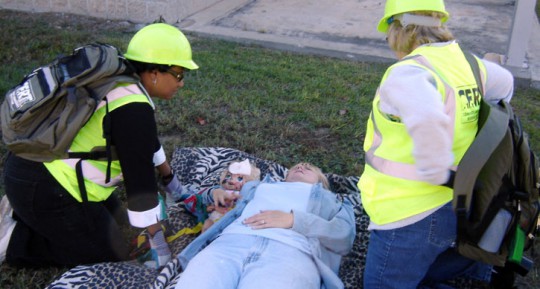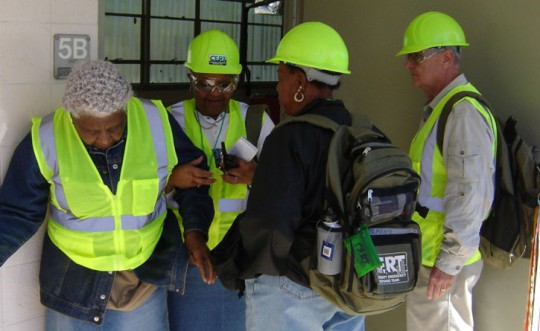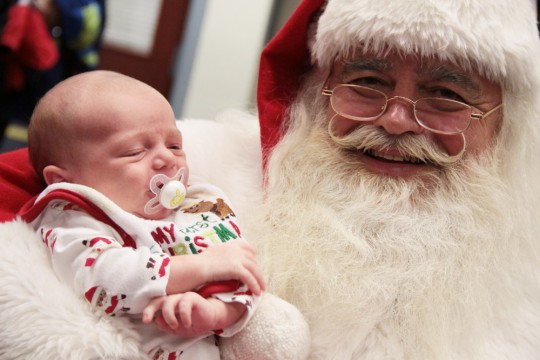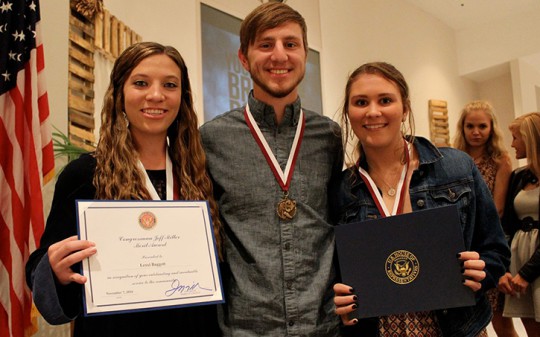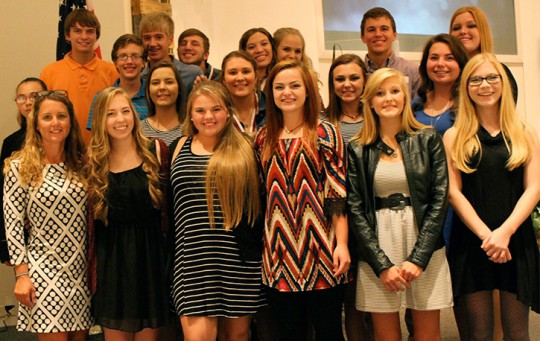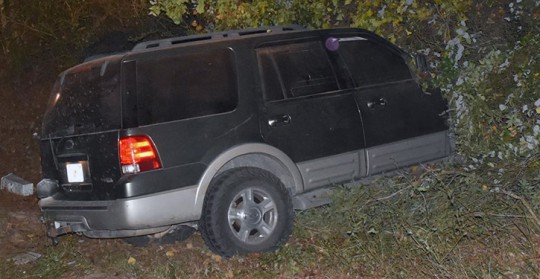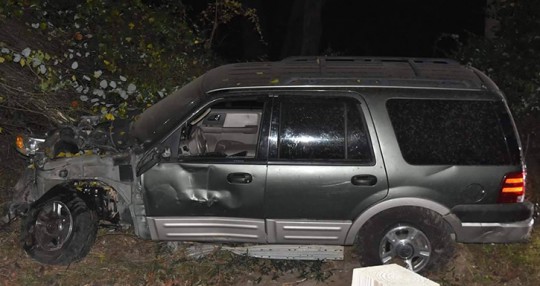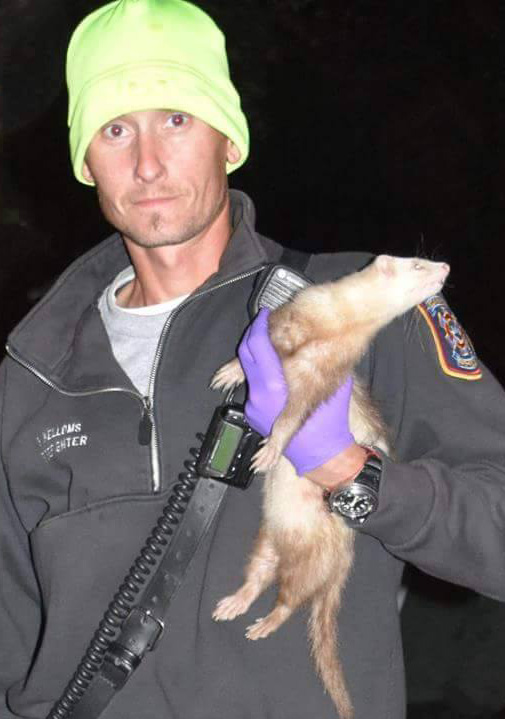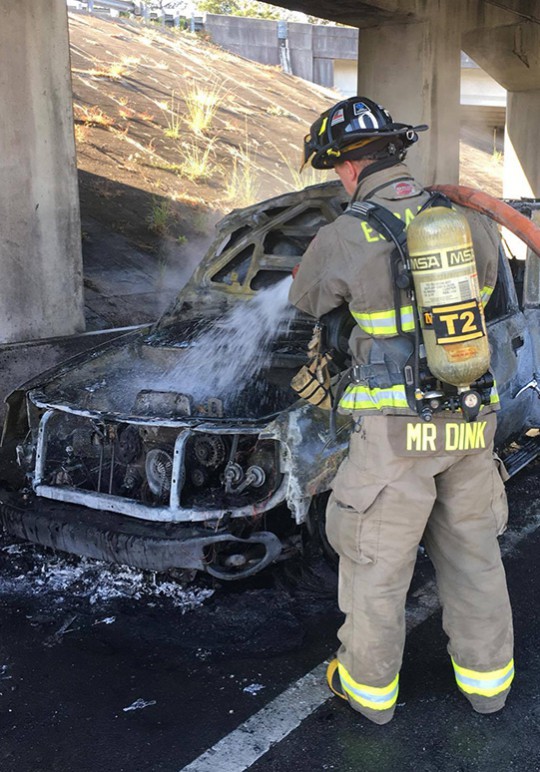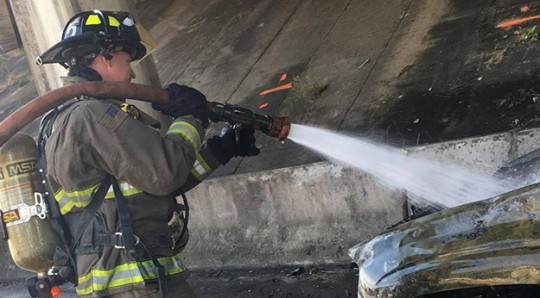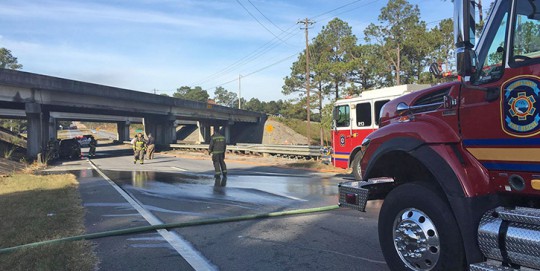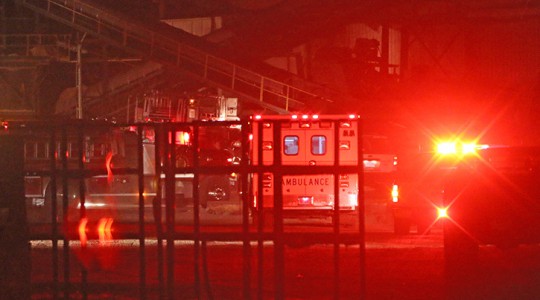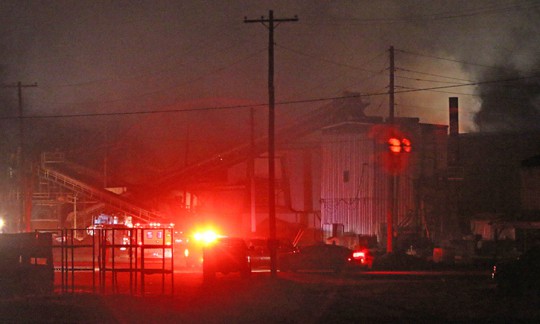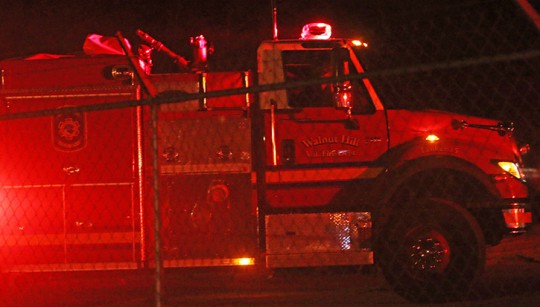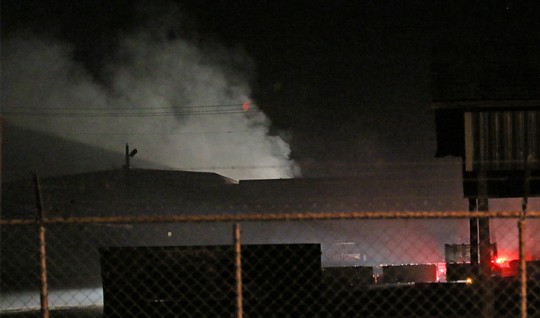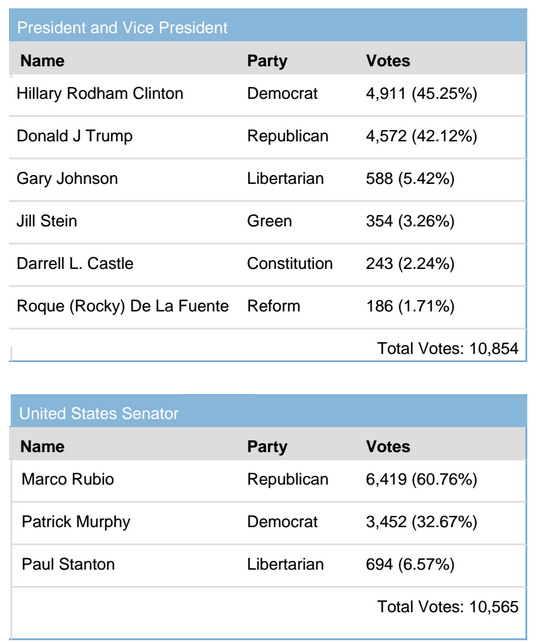Local Governments Receive Grants For Disaster Prep and Response
November 28, 2016
Volunteer Florida has awarded over $42,00/0 in federal funding to establish or enhance Community Emergency Response Teams (CERT) and citizen corp programs in Escambia County.
The Town of Century received a $7,000 grant for their CERT, plus an additional $7,400 for the Town of Century Citizen Corps.
The Escambia County and Pensacola CERT programs received $7,000 each, while The Escambia County and Pensacola Citizen Corps received an additional $7,000 each.
The organizations will match the funding dollar for dollar through cash or in-kind investments. The program is funded by the Federal Emergency Management Association (FEMA) and administered by Volunteer Florida.
“Volunteer Florida’s CERT funding specifically trains Floridians to take action following emergencies or disasters like hurricanes and tornadoes,” said Chester W. Spellman, Volunteer Florida CEO. “This unique training allows citizens to support the critical work of our emergency management officials by deploying CERT volunteers when they are needed, saving taxpayer dollars.”
CERT was created as a grassroots approach to encourage “neighbors helping neighbors” in the event of emergencies or disasters. Grantees conduct emergency management training to enhance the capabilities of local emergency management personnel. Following their training, grantees deploy citizens to impacted areas so that they can assist in response and recovery. Citizens are prepared to assist with light search and rescue, offer immediate help to victims until professional services arrive, provide evacuation assistance, and support damage assessment teams.
“The CERT program allows communities to recruit and train civilians as neighborhood, business and government teams that become auxiliary responders during disasters,” said Bryan Koon, Director of the Florida Division of Emergency Management. “We are thrilled that Volunteer Florida is administering this funding for Florida.”
Pictured: Century CERT volunteers during a disaster exercise. NorthEscambia.com file photos, click to enlarge.
FDLE Offers Safe Online Shopping Tips For Cyber Monday
November 28, 2016
It’s Cyber Monday — the Monday following Black Friday. Most online retailers hold a Cyber Monday sale; it is traditionally the busiest day of the year for online retailers. The Florida Department of Law Enforcement offers the following tips for safe online shopping today, and every day of the year.
Make Sure to Use a Secure Browser.
Make sure your browser meets industry security standards. Features such as the Secure Sockets Layer (SSL) encrypt your personal information as it is sent over the Internet. Most browsers are capable of SSL encryption and other security features.
There are two ways to determine if a website encrypts data before it is sent over the Internet. The first is that the URL displayed in the address bar will begin with the abbreviation “https.” This stands for Hypertext Transfer Protocol Secure. Web pages that do not encrypt data only display “http,” without the “s.”
Secure web pages will also display a second indicator, which differs depending on the particular browser being used. In most browsers, a small lock will appear in the bottom-right corner of the browser window.
Shop Only With Companies You Are Comfortable With.
Ask for paper documentation, such as a catalog or a brochure, if you are unfamiliar with an online merchant. This should help you become familiar with the vendor’s services and policies. Never deal with an on-line merchant whose policies are not explicitly clarified.
Keep Your Password(s) Secret.
Never reveal passwords that you use on-line. See the page on SecureFlorida.org for more information about passwords.
Pay by Credit or Charge Card.
Using your credit card online ensures that you will be protected by the Fair Credit Billing Act. This law provides consumers with the right to dispute charges made to their accounts. If unauthorized charges are made to your credit card, by law you are liable only for the first $50, and many companies don’t require you to pay anything.
Keep Records.
Keep a record of confirmation numbers and purchase orders. Print them out and keep personal copies. On-line orders are covered by the Federal Mail/Telephone Order Merchandise Rule. This rule states that merchandise ordered online must be delivered within 30 days unless otherwise noted. Your records will be able to provide proof of the date and time of purchase.
Paying Your Bills Online
Most companies offer you the convenience of paying your bills and checking your account online. Before enrolling in one of these “click-to-pay” programs, make sure you fully understand the company’s privacy policy and security measures. If an appropriate description of a company’s security procedures is not available, ask the company by calling them or e-mailing them.
Santa To Visit The Century And Molino Branch Libraries
November 28, 2016
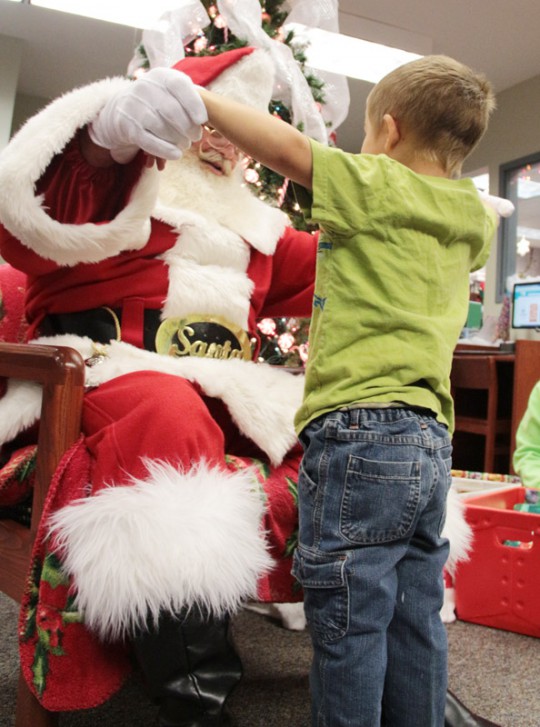 Mark your calendar…Santa Claus is coming to the Century and Molino branches of the West Florida Library.
Mark your calendar…Santa Claus is coming to the Century and Molino branches of the West Florida Library.
Santa will be at the Century Branch Library this Thursday, December 1 at 6 p.m. Children can enjoy stories, Santa and a little holiday spirit. Parents are encouraged to bring a camera for photos with Santa.
Santa will visit the Molino Branch Library on Tuesday, December 6 at 6 p.m. for a special Pajama Story Time with Santa. Children invited to wear their comfy, cozy pajamas, brink a blanket and join the library staff for a stories, milk and cookies along with a very special visit from Santa Claus. Parents are encouraged to bring their cameras.
Pictured: Santa visits the Century Branch Library last year. NorthEscambia.com photos, click to enlarge.
Student Athletes Honored At FCA Banquet
November 28, 2016
The Fellowship of Christian Athletes “Go the Distance” Awards were presented recently at a banquet hosted by the First Baptist Church of Pensacola.
Athletes from Escambia and Santa Rosa counties were honored for their participation in cross country, golf, swimming and volleyball.
Honored were:
Catholic Cross Country – Grant Kemp
Catholic Cross Country – Tori Toellner
Catholic Golf – Madelyn Demitroff
Catholic Golf – AJ Panyko
Catholic Swimming – Blakey Baker
Catholic Swimming – Ryan Dockery
Catholic Volleyball – Kiley Brady
East Hill Christian Cross Country – Will Philips
East Hill Christian Volleyball – Kaylie Dickson
East Hill Cross Country – Ella Griffith
Escambia Golf – Jason Bryant
Escambia Volleyball – Angela Harvey
Gulf Breeze Cross Country – Shelby Dunne
Gulf Breeze Cross Country – Mason Youberg
Gulf Breeze Golf – Desirae Kane
Gulf Breeze Golf – Brian Richards
Gulf Breeze Swimming – Whitney Speck
Gulf Breeze Swimming – Nik Bindi
Gulf Breeze Volleyball – Olivia Hepworth
Jay Cross Country – Grace Gillman
Jay Cross Country – Jimmie Ates
Pine Forest Golf – Daniel Taylor Limerick
Milton Cross Country – Brett Kaniper
Milton Cross Country – Becky Ward
Milton Golf – Beau Martin
Milton Golf – Megan Robertson
Milton Swimming – Andrew Simmons
Milton Swimming – Amber Gilley
Milton Volleyball – Mallory Bramel
Navarre Golf – Sultana Pohlmann
Navarre Swimming – Zach Sutton
Navarre Swimming – Killian Casey
Northview Cross Country – Adrian King
Northview Cross Country – Lexxi Baggett
Northview Volleyball – Brittanie McLemore
Pace Cross Country – Ceanna Martin
Pace Golf – Katrina Boteler
Pace Swimming – Richard Fisher
Pace Swimming – Zoe Hall
Pace Volleyball – Morgan Helton
Pensacola High Cross Country – Cody Wolfe
Pensacola High Cross Country – Patricia “TK” McAuley
Pensacola High Golf – Jack Myslak
Pensacola High Golf – Ashley Burroughs
Pensacola High Swimming – Allison Spradlin
Pensacola High Swimming – Jawone Blankenship
Pensacola High Volleyball – Ra’kell Watts
Pine Forest Golf – Rachel Rudd
Pine Forest Swimming – Clark Dunham
PSC Volleyball – Allison Von Brock
Tate Cross Country – Seth Godwin
Tate Cross Country – Hannah Wellenkamp
Tate Golf – Kaylee Jackson
Tate Swimming – Patrick Thorton
Tate Swimming – Olivia Gardner
UWF Cross Country – Kim Napoleon
UWF Cross Country – Micah Kemp
UWF Swimming – Karisa Kostecki
UWF Volleyball – Holly Mattmuller
Washington Cross Country – Jasiana Edwards
Washington Cross Country – Daniel Holzknecht
Washington Golf – Darcy Prendergast
Washington Golf – Peter Calogero
Washington Volleyball – Ally Blankenship
West Florida Cross Country – Rory Carmody
West Florida Cross Country – Mallory Mott
West Florida Golf – Madelyn Lathan
West Florida Golf – Ty Aulger
West Florida High Swimming – Janeese Faircloth
West Florida Swimming – Christian Marvin
West Florida Volleyball – Harmoni Burton
Pictured top: Northview FCA award winners (L-R) Lexxi Baggett, Adrian King and Brittanie McLemore. Pictured below: Northview banquet attendees. Photos for NorthEscambia.com, click to enlarge.
Forest Seedling Nursery To Be Built In Atmore
November 28, 2016
The largest producer of container-grown forest seedlings in North America will construct a nursery in Atmore to serve forest landowners and other customers in the southeastern U.S.
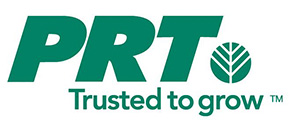 Construction of the PRT USA nursery will be completed in early 2017, and sowing of seedlings will occur in Spring 2017, for shipping to customers for the 2017-18 planting season.
Construction of the PRT USA nursery will be completed in early 2017, and sowing of seedlings will occur in Spring 2017, for shipping to customers for the 2017-18 planting season.
The nursery will be established at the former E.A. Hauss Nursery site in Atmore. PRT has signed a long term lease with the Alabama Forestry Commission, which includes land, buildings and infrastructure suitable to forest seedling production. PRT will construct container growing facilities on the site, which it intends to expand over time in response to customer needs. PRT’s forest seedling product offering will include longleaf, slash and loblolly pine, and other species.
“With establishment of this facility PRT will take another step towards our goal of better serving our customers in the Southeast U.S. This region is an important forestry market in North America, which is poised to grow as the forest industry economic recovery continues and as more customers embrace the advantages of container grown seedlings. An Alabama based nursery will allow us to make PRT’s containerized forest seedlings available for quick and effective turnaround deliveries during the fall and winter plant period starting in 2017,” said PRT President and CEO Rob Miller.
“We have worked diligently with the State of Alabama in order to arrive at this mutually agreeable arrangement for the former E.A. Hauss Nursery. We recognize and respect the legacy of this nursery to the State and the history of forestry in the region. We look forward to continuing this legacy by working with customers throughout the Southeast U.S. and being an integral part of their successful reforestation efforts now and in the future,” Miller added.
The PRT Group currently grows more than 180 million seedlings annually at a network of forest seedling nurseries in the U.S. and Canada.
Deer Hunters: Help Monitor For CWD, Be Aware What You Can Bring Into State
November 28, 2016
The Florida Fish and Wildlife Conservation Commission (FWC) is looking to hunters to help monitor the state’s deer herd the coming season for chronic wasting disease, or CWD as it’s more commonly called. And any Florida hunter planning to hunt deer, moose or elk out of state this year needs to be aware of certain laws and regulations aimed at preventing CWD from entering our state.
What is CWD?
CWD belongs to a group of diseases known as transmissible spongiform encephalopathies. Scientists still have much to learn about CWD, which appears to occur only in the deer family, but is believed to be caused by an abnormal protein called a prion.
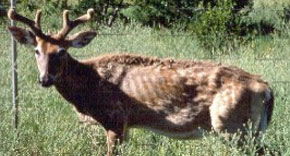 Fatal CWD attacks the brains of infected cervids (mule deer, white-tailed deer, moose and elk), causing them to become emaciated, display abnormal behavior and lose control of bodily functions.
Fatal CWD attacks the brains of infected cervids (mule deer, white-tailed deer, moose and elk), causing them to become emaciated, display abnormal behavior and lose control of bodily functions.
Warning signs of CWD hunters can look out for while in the field include deer that are extremely thin or appear sick, or those exhibiting odd behavior such as excessive salivating or urinating, staggering, walking in circles, standing with a wide stance, head tremors, or deer found dead from unknown causes. If you see a deer that fits this description, call 866-CWD-WATCH (293-9282).
Transmission of CWD occurs by direct contact with bodily fluids (feces, urine or saliva) or through contact with a contaminated environment. In this second scenario, the prion stays in the environment, and may remain infectious for years.
The good news is, there’s no evidence that CWD can be transmitted to humans or livestock, and it’s not yet been found in Florida or any other southeastern state. But it’s going to take the help of all hunters and the FWC to keep it that way.
Currently the only practical method for diagnosing CWD is through analysis of brain-stem tissue or lymph nodes from dead deer. Therefore Florida’s more than 200,000 hunters can play an extremely important role in CWD surveillance by providing samples from harvested deer for testing.
How you can help
The goal of the FWC is to collect these samples throughout Florida, and it’s asking private landowners and hunting clubs to participate in this surveillance effort. Since 2002, the FWC has tested nearly 9,000 hunter-killed, road-killed and sick/diseased deer for CWD.
If you’d like to help, contact the FWC by calling the toll-free CWD Hotline at 866-CWD-WATCH (293-9282) for further information and to coordinate collection and pick-up of deer samples.
To date, CWD has been found in mule deer, white-tailed deer, moose and elk in Arkansas, Colorado, Illinois, Iowa, Kansas, Maryland, Michigan, Minnesota, Missouri, Montana, Nebraska, New Mexico, New York, North Dakota, Ohio, Oklahoma, Pennsylvania, South Dakota, Texas, Utah, Virginia, West Virginia, Wisconsin and Wyoming. It also has been detected in Canada (Saskatchewan and Alberta), Norway and in South Korea.
The primary objective of CWD management is to prevent it from entering our state, so we have adopted laws regulating the transport of harvested deer into Florida.
What is legal to bring back when hunting out of state
It’s illegal for hunters to bring into Florida whole carcasses of any harvested cervid from any of the affected states or countries. From these areas, hunters can bring back only deboned meat and finished taxidermy mounts, hides, skulls, antlers and teeth, as long as all soft tissue has been removed. And citizens are encouraged to report to the FWC any illegal importation of cervids from affected areas by calling its Wildlife Alert Hotline, toll-free, 888-404-FWCC (3922).
Should a CWD outbreak occur in Florida, the keys to effective management will be detecting it early and taking swift action to limit its spread. Because of this, the FWC has a CWD action team made up of veterinarians, biologists, law enforcement officers and media folks, in place and ready to respond along with other government agencies, such as the Florida Department of Agriculture and Consumer Services, U.S. Department of Agriculture, U.S. Fish and Wildlife Service, Florida Department of Health and the Centers for Disease Control and Prevention.
What’s the number to call?
This season, if you come across or harvest a deer that appears sick or emaciated, or one that has died from unknown causes, don’t handle it. Instead, contact the FWC, 24/7 on its toll-free hotline at 866-CWD-WATCH (293-9282).
It’s important to call as soon as possible so the carcass can be collected and tested while it is still fresh.
- See more at: https://www.morningagclips.com/help-monitor-for-cwd/#sthash.C2QDEQKL.dpuf
First Responders Rescue Driver, And Ferret, Following Crash
November 28, 2016
Firefighters rescued a driver — and a ferret — following a single vehicle crash Sunday night.
The driver was transported to an area hospital by ambulance with injuries that were not considered life threatening following the 11:30 p.m. crash on Mobile Highway near Klondike Road . A ferret in the vehicle escaped after the crash and was later located by firefighters. Escambia County Animal Control will hold the ferret (pictured bottom) until the driver is released from the hospital.
Further details on the crash have not been released by the Florida Highway Patrol.
NorthEscambia.com photos by Kristi Barbour, click to enlarge.
Overpass Deemed Safe After Vehicle Fire
November 27, 2016
An I-10 overpass has been deemed safe after a vehicle fire underneath it Sunday morning in Beulah.
Fire destroyed the vehicle under the I-10 overpass over Nine Mile Road. Firefighters and state officials inspected the bridge for any possible damage from the intense heat and flames.
There were no injuries reported.
The Beulah and Bellview stations of Escambia Fire Rescue responded to the fire.
Photos for NorthEscambia.com, click to enlarge.
Firefighters Battle Lumber Mill Fire
November 27, 2016
Firefighters from across the area battled a fire at Swift Lumber in Atmore overnight.
The fire was reported about 11:15 p.m. Saturday, with firefighters still working at 2 a.m. to extinguish the fire. The fire was first reported to be in an area behind the main sawmill, near the back of the sprawling lumberyard. The fire reportedly burned near the main electrical power transformers for the facility, forcing firefighters to cut power to the entire facility.
Dozens of firefighters from Atmore, Poarch, Nokomis and Walnut Hill battled for hours to completely contain the fire. The major portion of the fire was extinguished within a couple of hours, but portions continued to smolder and burn well into the morning. The Poarch, Nokomis and Walnut Hill fire department were released from the scene about 2:40 a.m., while Atmore firefighters remained on scene.
There were no reports of any injuries, and there was not immediate word on the cause of the fire.
Pictured top: Firefighters and an ambulance stage near the main sawmill at Swift Lumber in Atmore Saturday night. Pictured below: Smoke can be seen rising from behind the buildings. Pictured below middle: A tanker truck from the Walnut Hill Station of Escambia Fire Rescue arrives at the Swift Lumber company in Atmore early Sunday morning. Pictured bottom: Smoke can be seen rising the facility. NorthEscambia.com photos, click to enlarge.
Escambia Students Cast Votes In Mock Presidential Election
November 27, 2016
Escambia County Supervisor of Elections David H. Stafford partnered with Escambia County School District and Double Click Democracy, an online election service supported by the Lou Frey Institute at UCF and Kids Voting USA, in offering Escambia County students the opportunity to vote in a mock Presidential election. More than 10,000 students in multiple grade levels from various schools around the county participated in the online election and cast their ballot in two contests: President and Vice President, and United State Senator.
 The students’ results matched actual results in the U.S. Senate contest, with Marco Rubio edging out Patrick Murphy. However, the students chose differently than Escambia County voters in the Presidential contest, selecting Hillary Clinton over Donald Trump. A copy of the results is below.
The students’ results matched actual results in the U.S. Senate contest, with Marco Rubio edging out Patrick Murphy. However, the students chose differently than Escambia County voters in the Presidential contest, selecting Hillary Clinton over Donald Trump. A copy of the results is below.
“Our team was thrilled to play a role in offering area students the chance to participate in this election in a meaningful way,” said Stafford.
The Escambia County Supervisor of Elections office visits schools year-round, offering presentations on the elections process and the chance for students to cast demonstration ballots on actual voting equipment used in elections. Currently, voters aged 18 to 25 represent the second largest group of voters in Escambia County, but have the lowest voter participation rate in most elections.
“In our Social Studies classes we teach history and civics lessons and the responsibilities associated being be a citizen in our country. Voting is a right and becoming a regular educated voter is a responsibility,” said Escambia School Superintendent Malcolm Thomas. “Our partnership with our county’s election office, and the many ways they give our students opportunities to vote on school level decisions, such as student government and favorite Sunshine books, by using real ballots and voting equipment helps introduce this responsibility as early as elementary school and is greatly appreciated.”
“By engaging students with hands-on voting experiences and election education at an early age, we hope to change this statistic,” added Stafford.


